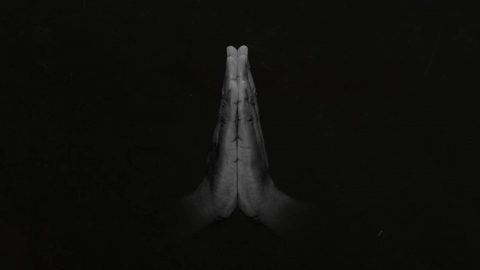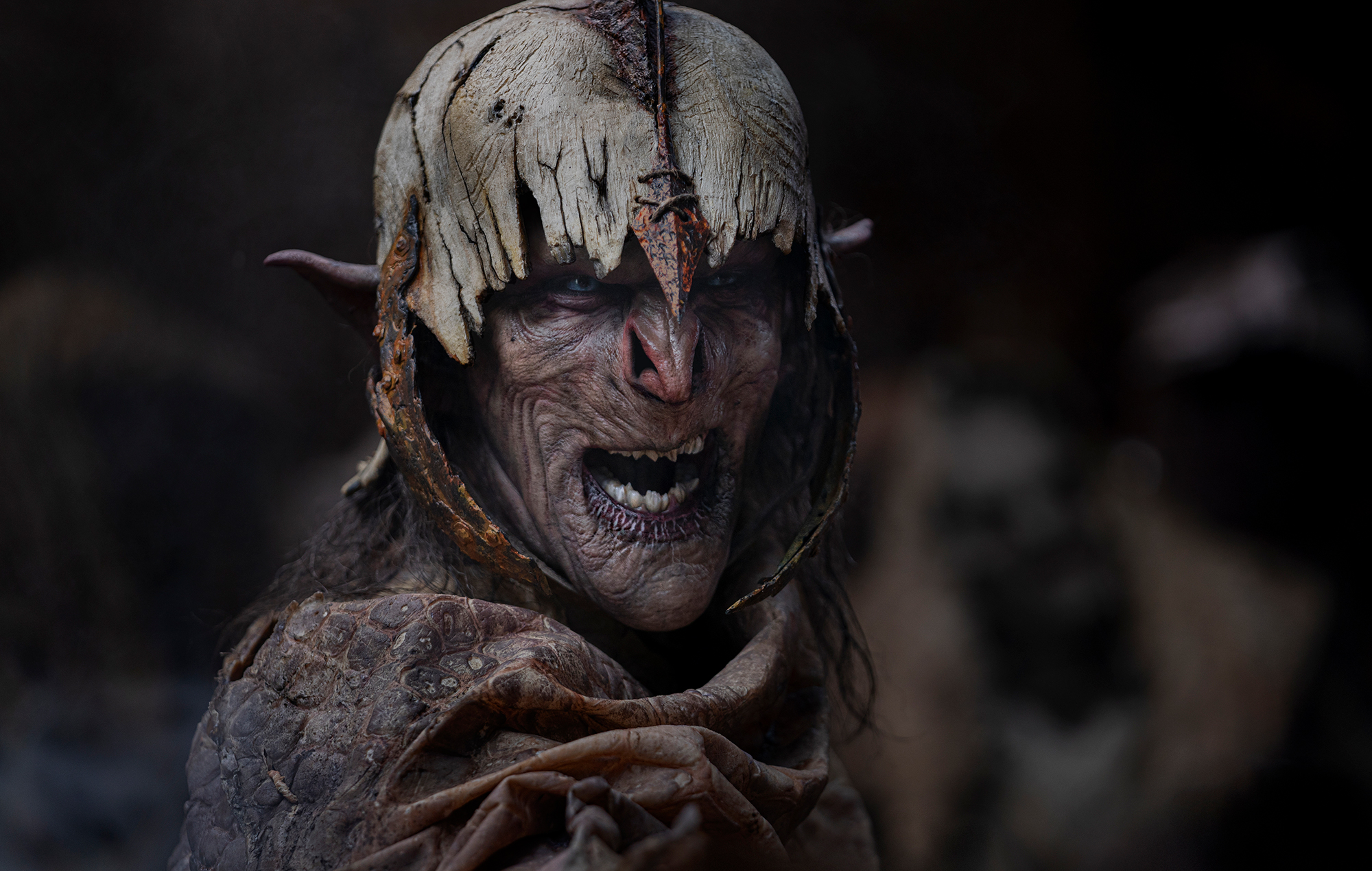
There was a period of Skullcrusher’s life when a recurring dream became as loud and inescapable as a siren. From the age of five, the US artist born Helen Ballentine experienced fragmented visions of an unidentifiable face whenever she slept at night, and would wake up each morning feeling disorientated over the nightmarish sensations she’d just experienced. And then, just as quickly, it was all gone.
Two decades later, during the summer of 2021, Ballentine started to reconcile with these unsettling memories from her early years. Cocooned in her LA apartment as the world around her continued to adapt to living with the pandemic, she began to think about what her life was like growing up in Mount Vernon, a suburb situated 200 miles north of New York City. A supercut of images, from the pain she felt leaving her childhood home in her late teens to her parents’ protracted separation, came flooding back – and that’s when the music came, timely and rapidly. As the process of making her debut album, ‘Quiet The Room’ (due October 14), began, Ballentine noticed how this fundamental shift in her understanding of time and growth had also altered the meaning of the songs she had been working on.
“As I was investigating these moments from my life while making the album, it felt as though I was doing this very private ritual,” Ballentine tells NME over Zoom, dialling in from her in-house studio. “I’ve never really thought too much about where to draw the line when I’m writing, even though my work is very personal. But at the same time I think that it’s important to share these experiences I’ve had, as a lot of people have been through similar difficulties. It’s made me feel less alone.”
Set to be released via the independent label Secretly Canadian (home to Yeah Yeah Yeahs and Porridge Radio), the songs on ‘Quiet The Room’ are more clear-eyed, personal and direct than those on her self-titled 2020 EP and the ‘Storm In Summer’ EP which followed a year later. Across 14 meticulously crafted tracks, Ballentine lurches around in the darkness of her childhood experience; its highs and lows playing out in string-soaked emotion. Some of the songs even require Ballentine’s voice to go so low that it drops to a whisper – you have to listen closely to catch it.
The album nods to the homespun folk music that has trickled through Ballentine’s earlier material, but sharp intakes of breath and percussive flourishes contrast the tracks’ hazy layering, particularly on ‘Window Somewhere’ and ‘Whistle Of The Dead’. The latter noticeably weaves in a home recording of Ballentine playing piano as a toddler. “I was trying to capture this intensity that was manifesting in me as a kid, and I wanted to portray that in the music,” she explains. “It’s really interesting how we try to communicate certain things that we don’t yet have the words for.”
‘Quiet The Room’ is as rich with love as it is heavy with loss, often reflecting on both within the same song. The album’s formal inception began two years ago when Ballentine recorded the title track on the piano, which she first learned to play as a child. Her relationship with the instrument, however, started to become fractured over the years, as she didn’t have access to a piano as a college student nor when she moved into her first house share in LA after graduating with a degree in graphic design.
While working on ‘Quiet The Room’ during the pandemic, Ballentine found herself adrift and searching for who she is when she isn’t Skullcrusher – a stage name that she previously described to NME as being the antithesis of the “quiet, soft and small” person she views herself as. “It’s hard to validate the things that you have found difficult in your life, but I can identify with that sense of loneliness I felt all those years ago,” she says now. “I can still feel that connection with my past self.”
Being out of the cycle of performing live only compounded Ballentine’s confusion, and nearly plunged her into a state of stasis: everything had rushed to the surface as the crowds grew quiet. But as much she worried that her “troubled” relationship with her past was becoming a source of concern, it also served as a subject of interest for her songwriting. “Late at night I hear a name I don’t recognise / I’m in my bed, but it feels weird / Where is my body?” she sings over creeping keys on ‘Pass Through Me’, a startingly personal rumination on the night terrors of Ballentine’s youth and one of her most engulfing and moving songs yet.
“I was very in touch with a darker side of myself as a child, but also fearful of this space that I would go into at night,” she tells NME. A feeling of constant terror, like a sharp pitchfork prodding at her back, continued to push Ballentine forward growing up. She describes how she was an “unbelievably creative” child, one that enjoyed dreaming up imaginary friends but in a way that sounds overwhelming – she believed, for instance, that ghosts were real. Her disrupted sleep pattern, meanwhile, seemed to stem from Ballentine actively avoiding the reality that her parents’ relationship had fallen apart.
Understanding and accepting the emotional turmoil she went through as a child is something that Ballentine is still working on, but she acknowledges this with a lilt of optimism in her voice. Her deep and inquisitive eyes widen further as she describes how she has held onto the marbles, soft toys, cat-shaped glass tchotchkes and blankets that she previously decorated her childhood bedroom with, as these familiar physical objects now provide her with “a sense of safety”.
“Keeping my belongings close to me is something that has transferred to my adult life,” she adds. “I try to make everything feel as comfortable as possible, particularly when making music. It reminds me that I have compassion for my younger self, too.”

It is this confessional openness to Ballentine’s work, as well as its keen sense of being a vital emotional outlet for its creator, that has likely led listeners to develop such a deep connection with her music. While recording ‘Quiet The Room’ she drew inspiration from artists that have had a similar impact on her own musical journey, particularly Welsh producer Kelly Lee Owens, who explored her own connection to the idea of home on 2020’s ‘Inner Song’. “[Owens’ music] feels similar to how I was trying to explore memory, and how it can be something that’s very fluid,” she notes.
Ballentine’s kinship with Owens extends to a further level. After befriending a DJ in college, Ballentine became interested in the sort of warm and intricate electronic music that Owens is a master of, and has experimented with similar sounds on ‘Quiet The Room’. Interlude ‘Outside, Playing’ sees her approach each texture with curiosity and care, melding brief washes of static and synths. “For me, the beginnings of the song will always exist on a guitar, piano or banjo. I don’t think I’ll ever be someone who can make a song on the computer, because that isn’t natural to me,” she says. “But bringing in more electronic soundscapes to my music provides a way to imbue the seed of a song with a variation of possibilities, which is so bright and exciting.”
There are other factors that are giving Ballentine hope, too. She concludes that even if her healing is still a work in progress, she’s at least found a new and more everyday strength in her immediate surroundings. As a result, the world of Skullcrusher has been reformed and renewed. “Do you ever look back? / Does it all fit together? / If we’re here does it matter?”, she sings on ‘Whatever Fits Together’, focusing her acceptance on the present while steering an open and hopeful gaze towards the future.
“Making this album has helped me to accept that there are going to be difficult memories that will surface, yet, over time, the beauty will come to light. I’ve come to see my childhood from a different perspective.” Smiling, she adds: “I am learning how to just find home in myself, wherever I am.”
Skullcrusher’s debut album ‘Quiet The Room’ is out on October 14 via Secretly Canadian.
The post Skullcrusher: LA folk star with a sparkling gift for vivid, purposeful songwriting appeared first on NME.






